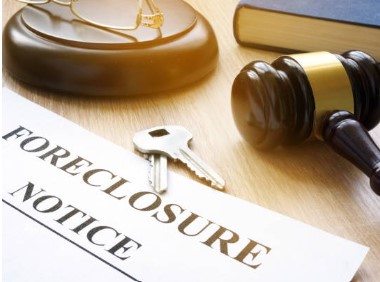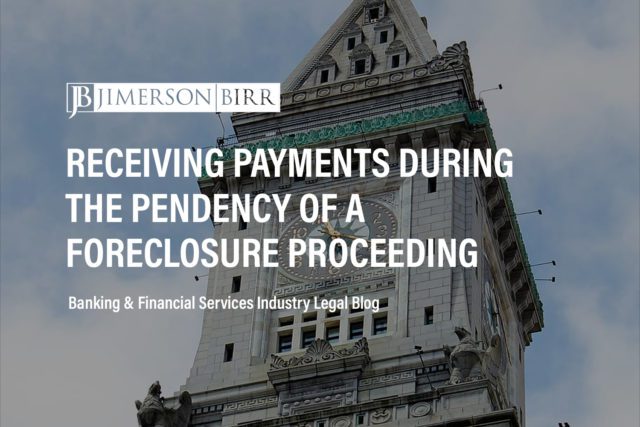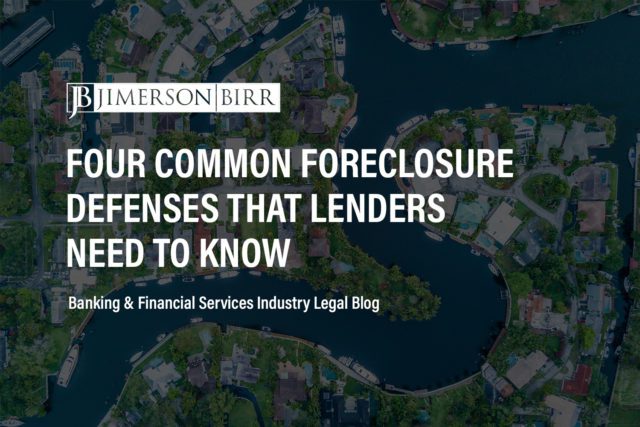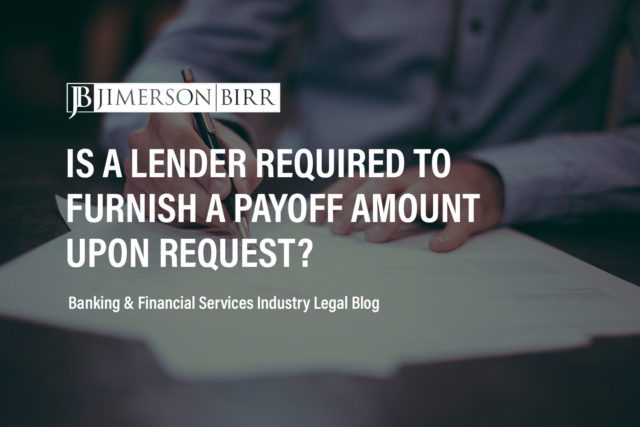What does foreclosure or repossession during bankruptcy encompass?
Foreclosure and repossession in bankruptcy matters involve the legal process by which creditors seize collateral, such as homes or vehicles, to satisfy outstanding debts. In the context of bankruptcy legal services for creditors in Florida, these processes typically occur when a debtor defaults on their loan or mortgage payments, and creditors seek to recover their losses.
For example, if a debtor in Florida files for bankruptcy under Chapter 7, a trustee may sell the debtor’s non-exempt assets, such as their home or vehicle, to pay off creditors. Sometimes, a debtor may avoid foreclosure or repossession by entering into a loan modification or repayment plan with their creditor.
Need a bankruptcy law advocate? Schedule your consultation today with a top bankruptcy and restructuring attorney.
Which Florida laws and regulations apply to foreclosure or repossession during bankruptcy?
In Florida, foreclosure and repossession in bankruptcy follow a combination of federal and state laws. The federal Bankruptcy Code provides the framework for bankruptcy proceedings, while Florida law provides specific rules and procedures for foreclosure and repossession actions. In addition, federal laws such as the Fair Debt Collection Practices Act and the Servicemembers Civil Relief Act also apply to protect debtors during foreclosure and repossession proceedings.
Key Florida statutes governing foreclosure include Chapter 702 of the Florida Statutes, which oversees the foreclosure of mortgages and other liens on real property. In addition, for repossession, Florida’s Uniform Commercial Code outlines the rights and remedies of secured creditors concerning personal property.
How does foreclosure or repossession implicate the bankruptcy process?
When a debtor in Florida files for bankruptcy, foreclosure or repossession in bankruptcy matters can significantly impact the bankruptcy process. Creditors may initiate foreclosure or repossession actions against debtors who have defaulted on their loans or mortgage payments, which can affect the assets’ distribution among creditors.
In a Chapter 7 bankruptcy, a debtor’s non-exempt assets are liquidated to repay creditors. If foreclosure or repossession occurs during this process, it may reduce the pool of assets available to other creditors. Conversely, in a Chapter 13 bankruptcy, debtors propose a repayment plan to pay off their debts over a period of time. Foreclosure or repossession actions can jeopardize the debtor’s ability to adhere to the repayment plan, which may ultimately lead to the plan’s failure.
Additionally, foreclosure and repossession actions may influence the debtor’s decision to pursue bankruptcy exemptions, such as Florida’s homestead exemption, which can protect certain assets from liquidation.
When a set of facts is appropriate for bankruptcy services, there are many paths a claimant may take. We are value-based attorneys at Jimerson Birr, which means we look at each action with our clients from the point of view of costs and benefits while reducing liability. Then, based on our client’s objectives, we chart a path to seek appropriate remedies.
To determine whether your unique situation may necessitate litigation or another form of specialized bankruptcy advocacy, please contact our office to set up your initial consultation.
What legal risks do creditors face during foreclosure or repossession?
Creditors may face the following circumstances:
- Violating the automatic stay: When a debtor files for bankruptcy, an automatic stay is imposed, preventing creditors from pursuing further collection actions. A creditor may face penalties if they violate the automatic stay by continuing foreclosure or repossession efforts.
- Failing to comply with state and federal laws: Creditors must adhere to Florida’s foreclosure laws and the Fair Debt Collection Practices Act (FDCPA) when initiating foreclosure or repossession actions. Noncompliance can result in legal liabilities, fines, or sanctions.
- Fraudulent or preferential transfers: If a creditor engages in fraudulent or preferential transfers during the bankruptcy process, the trustee may recover the transferred assets, potentially leading to a loss for the creditor.
- Deficiency judgments: In some cases, a foreclosure sale may not cover the debt owed by the debtor. Creditors might be unable to recover the remaining balance, which is known as a deficiency judgment.
- Challenges to secured status: A debtor or trustee may challenge the validity of a creditor’s lien or security interest, potentially affecting the creditor’s right to foreclose or repossess the collateral.
- Loss mitigation: Creditors may be required to participate in loss mitigation efforts, such as negotiating loan modifications or repayment plans, which may affect the creditor’s ability to recover the total amount owed.
Please contact our office to set up your initial consultation to see what forms of legal protection and advocacy may be available for your unique situation.
How should bankruptcy counsel facilitate foreclosure or repossession during bankruptcy?
Counsel should consider the following to protect their clients:
- Strict compliance with laws: Adhere to Florida’s foreclosure laws and the Fair Debt Collection Practices Act (FDCPA) to avoid penalties, sanctions, or legal liabilities.
- Proper documentation: Ensure all loan and security documents are accurate and enforceable to avoid challenges to secured status, which can affect the right to foreclose or repossess collateral.
- Monitor the automatic stay: Keep a close watch on the debtor’s bankruptcy filing to avoid violating the automatic stay and incurring penalties.
- Collaborate with the bankruptcy trustee: Coordinate with the trustee to identify any fraudulent or preferential transfers and recover assets that may be subject to clawback.
- Participate in loss mitigation: Engage in loss mitigation efforts, such as loan modifications or repayment plans, to increase the likelihood of recovering the total amount owed.
- Seek legal advice: Consult with experienced bankruptcy counsel to navigate the complex legal landscape surrounding foreclosure and repossession in bankruptcy matters.
Frequently Asked Questions
- Can a creditor continue foreclosure or repossession actions after a debtor files for bankruptcy in Florida?
No, once a debtor files for bankruptcy, an automatic stay applies, which stops most collection actions, including foreclosure and repossession. Creditors must wait until the stay lifts or seek relief from the stay through bankruptcy court.
- How can a creditor protect its interests in a debtor’s bankruptcy case?
Creditors can protect their interests by actively participating in the bankruptcy process, filing proofs of claim, attending creditor meetings, and working with the bankruptcy trustee to ensure accurate and fair distribution of the debtor’s assets.
- Is a creditor entitled to deficiency judgments after a foreclosure sale in Florida?
Yes, if the foreclosure sale does not cover the entire debt owed by the debtor, the creditor may seek a deficiency judgment for the remaining balance. However, Florida law sets a time limit for seeking deficiency judgments, so creditors must act promptly.
Have more questions about how bankruptcy services could positively impact your business operations and relationships?
Crucially, this overview of foreclosure or repossession during bankruptcy does not begin to cover all the laws implicated by this issue or the factors that may compel the application of such laws. Every case is unique, and the laws can produce different outcomes depending on the individual circumstances.
Jimerson Birr attorneys guide our clients to help make informed decisions while ensuring their rights are respected and protected. Our lawyers are highly trained and experienced in the nuances of the law, so they can accurately interpret statutes and case law and holistically prepare individuals or companies for their legal endeavors. Through this intense personal investment and advocacy, our lawyers will help resolve the issue’s complicated legal problems efficiently and effectively.
Having a Jimerson Birr attorney on your side means securing a team of seasoned, multi-dimensional, cross-functional legal professionals. Whether it is a transaction, an operational issue, a regulatory challenge, or a contested legal predicament that may require court intervention, we remain tireless advocates at every step. Being a value-added law firm means putting the client at the forefront of everything we do. We use our experience to help our clients navigate even the most complex problems and come out the other side triumphant.
If you want to understand your case, the merits of your claim or defense, potential monetary awards, or the amount of exposure you face, you should speak with a qualified Jimerson Birr lawyer. Our experienced team of attorneys is here to help. Call Jimerson Birr at (904) 389-0050 or use the contact form to schedule a consultation.

We live by our 7 Superior Service Commitments
- Conferring Client-Defined Value
- Efficient and Cost-Effective
- Accessibility
- Delivering an Experience While Delivering Results
- Meaningful and Enduring Partnership
- Exceptional Communication Based Upon Listening
- Accountability to Goals











